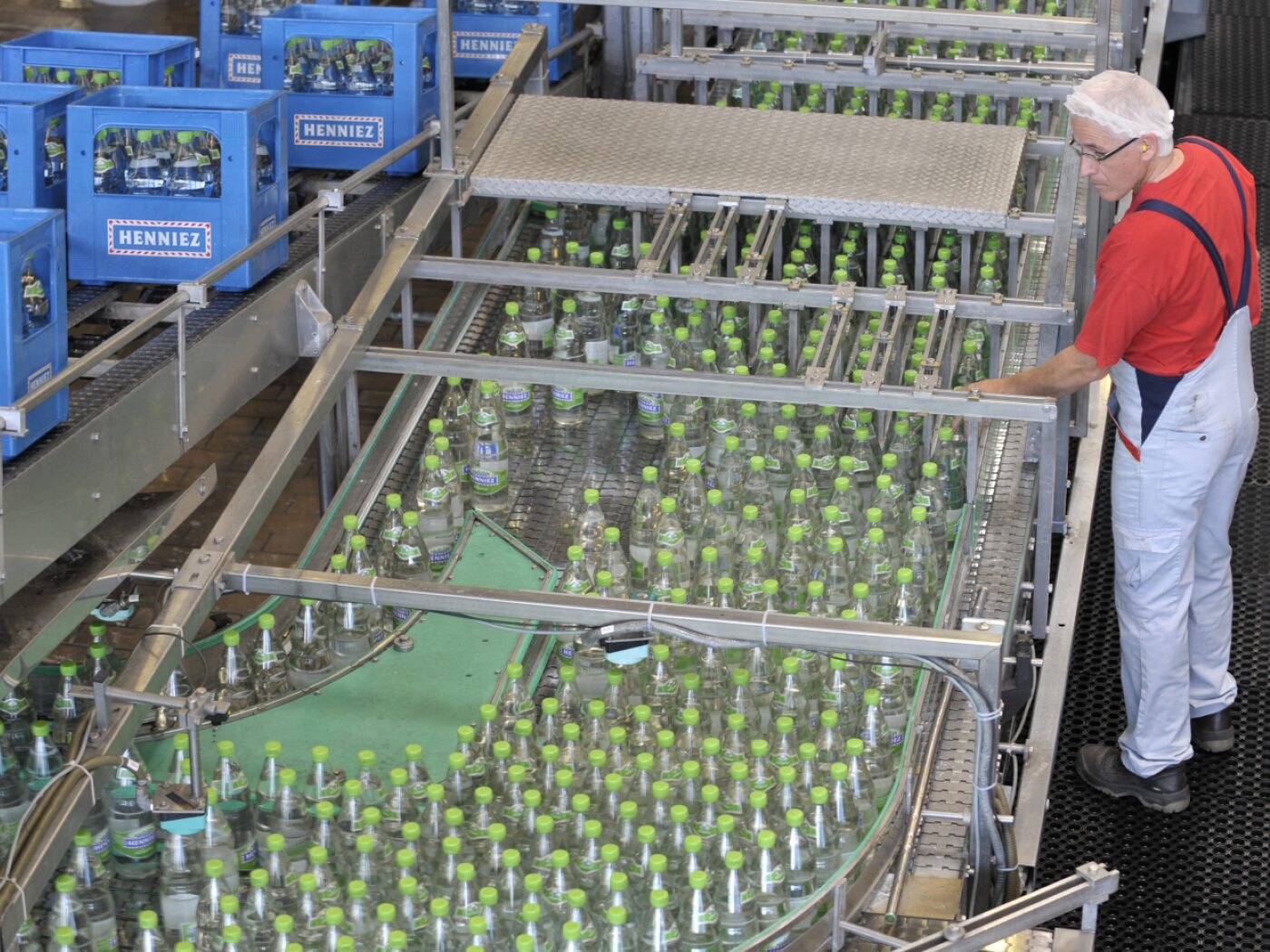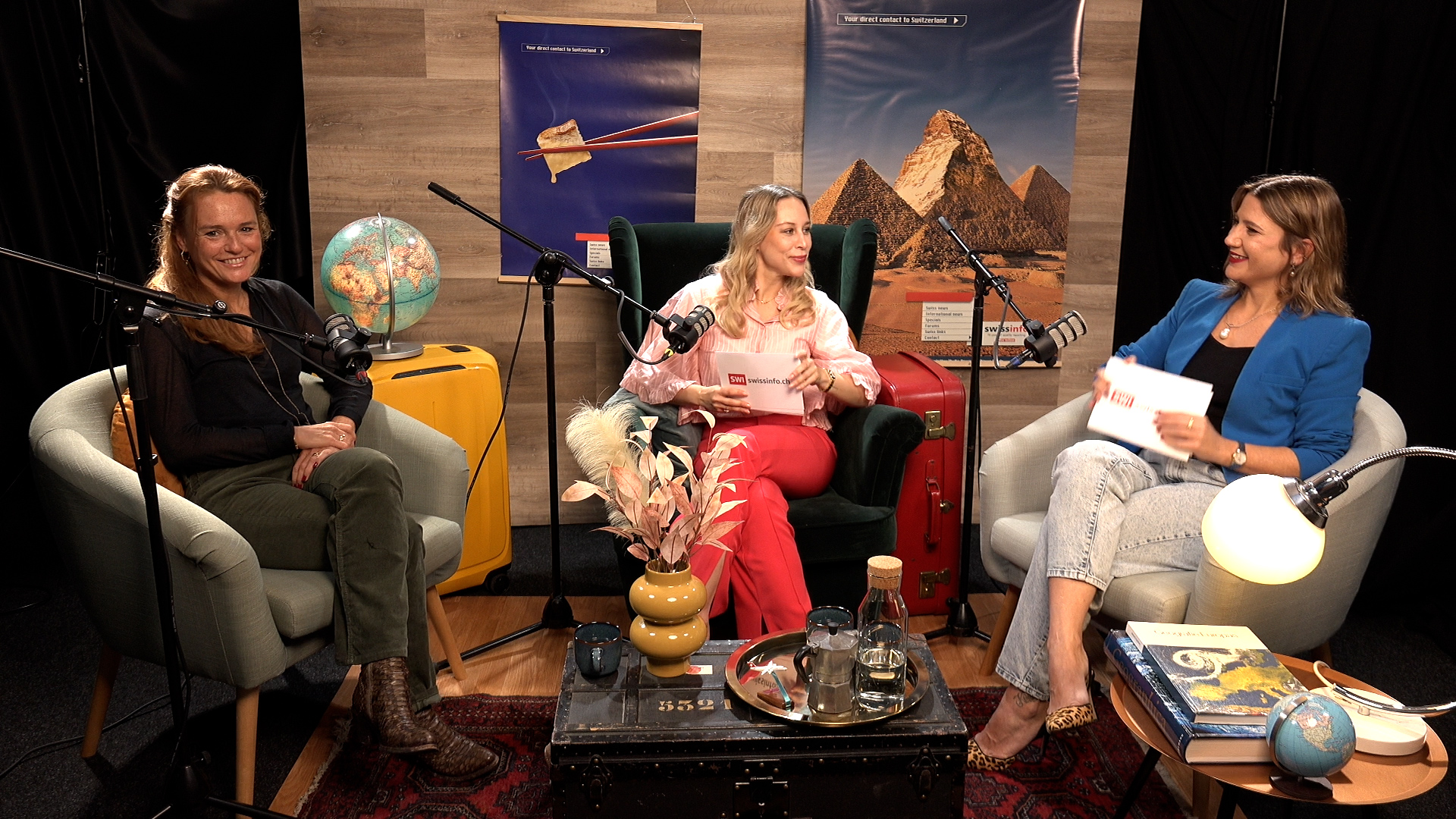
French parliament adopts scathing report on Nestlé Waters

The French parliament adopted a report on the control of mineral water treatment by Nestlé Waters on Wednesday. It follows revelations of prohibited methods used by Nestlé's bottled water subsidiary.
+ Get the most important news from Switzerland in your inbox
“The report sheds light on the steps involved in bringing Nestlé Waters into compliance, organised in complete confidentiality under the aegis of the State between the end of 2021 and the end of 2023,” states a press release seen by the news agency AWP.
The document “deplores the State’s belated and lackadaisical response to the reports made as early as 2020 and 2021: the prohibited treatments were only abandoned by Nestlé Waters in August 2023, almost two years after the political authorities were informed.”
French Senator Antoinette Guhl launched a parliamentary mission in the spring, in the wake of press revelations that natural mineral and spring waters, notably from the Nestlé subsidiary operating the Vittel, Contrex and Hépar brands in the Vosges region, as well as Perrier in the south of France, had been treated in ways that did not comply with regulations.
Last February, Nestlé acknowledged that it had also used prohibited depollution processes for Henniez mineral water in Switzerland. Natural mineral water and spring water must be pure and therefore untreated.
Lack of transparency
The document adopted on Wednesday by the upper house of the French Parliament states that “the rapporteur deplores the lack of transparency on the part of certain private and public players that the mission encountered and, above all, the slowness of the industry’s compliance in the absence of more proactive measures on the part of the State”.
She points to “the long delay in putting an end to these practices, which are explicitly forbidden by the regulations: in the Vosges, they ceased almost a year and a half after Nestlé Waters’ revelations to the State, and in the Gard, almost two years later!”
Guhl believes that “the intensity of their controls needs to be stepped up, as does the sharing of information between administrations”. The report recommends stepping up controls and paying particular attention to the traceability of mineral and spring waters. “The use of these treatments also raises questions about the vulnerability of groundwater sources to pollution.”
It also points out that 2.9 million bottles of the Perrier brand “have been destroyed”. Last April, Nestlé Waters referred to a “one-off microbiological deviation”.
While the text stresses “the absence of any health risk to the products marketed”, the commission regrets that consumer information “has been totally neglected throughout the sequence”. It calls for tighter labelling and a clearer distinction between the different water grades.
Revelations
Last July, Mediapart revealed that Nestlé Waters had made over €3 billion (CHF2.8 billion at today’s exchange rates) from the sale of treated water over a fifteen-year period, a figure denied by the company.
Last September, the public prosecutor in Epinal (Vosges) announced that Nestlé Waters, the target of two preliminary investigations for illegal drilling and deception, would pay a fine of €2 million after concluding a judicial public interest agreement.
This agreement was rejected by the consumer protection association Foodwatch, which immediately filed a complaint in Paris to have an investigating judge look into the practices of the Nestlé giant concerning its bottled waters.
Translated from French by DeepL/jdp
This news story has been written and carefully fact-checked by an external editorial team. At SWI swissinfo.ch we select the most relevant news for an international audience and use automatic translation tools such as DeepL to translate it into English. Providing you with automatically translated news gives us the time to write more in-depth articles.
If you want to know more about how we work, have a look here, if you want to learn more about how we use technology, click here, and if you have feedback on this news story please write to english@swissinfo.ch.

In compliance with the JTI standards
More: SWI swissinfo.ch certified by the Journalism Trust Initiative































You can find an overview of ongoing debates with our journalists here . Please join us!
If you want to start a conversation about a topic raised in this article or want to report factual errors, email us at english@swissinfo.ch.